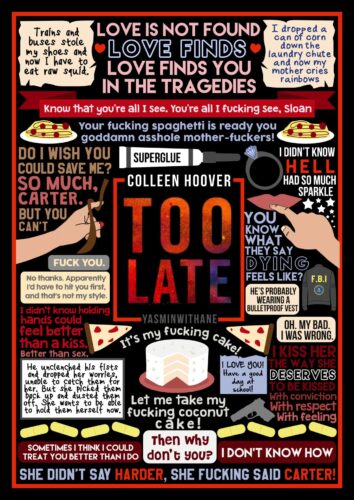In recent years, a noticeable shift in the literary landscape has emerged, with books categorized as soft porn or erotic romance gaining unprecedented popularity. These books, often characterized by explicit sexual content fused with emotionally charged narratives, have carved out a niche that now rivals, if not surpasses, traditional genres in terms of reach and audience. This trend, while reflective of evolving reader preferences, raises questions about the quality of modern literature and the type of audience drawn to such works.
Authors like Colleen Hoover have become emblematic of this phenomenon. Her novels, such as It Ends with Us and Reminders of Him, have topped bestseller lists, appealing to readers with their blend of passion, trauma, and emotionally dramatic storylines. Similarly, earlier titles like E.L. James’s Fifty Shades of Grey trilogy not only dominated sales but also normalized the consumption of explicit content in mainstream literature. These works have transcended niche markets, finding a home in book clubs, social media discussions, and bedside tables across the globe.
The appeal of such books lies in their accessibility. With simple language, formulaic yet engaging plots, and a focus on intense emotions, these novels offer readers an escapist experience. They are not intimidating or intellectually demanding, making them attractive to those who are new to reading or prefer a quick, satisfying story over the complexities of traditional literature. Social media platforms like TikTok and Instagram have further amplified their appeal, with viral hashtags like #BookTok driving sales and creating a culture where reading these books is trendy and relatable.
However, critics argue that the rise of such novels signals a decline in literary standards. These books often lack the depth, originality, and nuance found in serious literature. Their reliance on sensationalism and physical intimacy as central plot devices is seen by many as catering to shallow, instant gratification rather than fostering a deeper appreciation for storytelling. Readers of such books are frequently dismissed as “wannabes,” individuals who consume literature for the aesthetic or social clout it provides rather than for genuine engagement with the text. This has led to a growing divide between those who champion literary excellence and those who embrace the entertainment value of such novels.
Nevertheless, this criticism may overlook an important nuance. While soft porn novels dominate sales charts, they also serve as an entry point into the world of books for many readers. What begins as a casual indulgence in accessible literature can, for some, evolve into a broader exploration of genres and styles. Dismissing their readers entirely risks alienating a demographic that might eventually develop a taste for more challenging and enriching literary works.
The overwhelming success of these books also reflects the commercialization of art in a digital age. Publishers are keen to capitalize on trends, and the marketing strategies for such novels; embellished with flashy covers, catchy titles, and emotionally provocative quotes are meticulously designed to cater to the algorithm driven culture of social media. This commodification has made reading more about consumption and less about contemplation, but it also ensures that literature, in some form, continues to thrive in a fast-paced world.
All in all, while the rise of soft porn in modern literature may concern purists, it also represents a significant cultural shift. Rather than lamenting the state of contemporary reading habits, the literary community might see this trend as an opportunity to engage new readers and guide them toward a richer appreciation of the written word. Literature, in all its forms, has the power to connect, inspire, and transform regardless of the starting point.
Author holds masters degree in English Literature and is currently working as an educator.









Very well-written. These novels which are trendy today may in future lead to reading serious issues based narratives by readers. But some times it may be the other way round for many people. If they start with light romances and formulaic books one may never grow into reading good literary books which may become classics standing the test
of time. But if you with classics one may not ever get out of reading good books. They will help one to form character, set behavioural norms, teach better sense of right and wrong and so on.
In telugu serialised fiction adopted by magazines helped growth of readership and good quality novels,
trend breaking novels appeared in these serial novels that guided readers
readers reading choices and also
helped writers to establish
themselves.